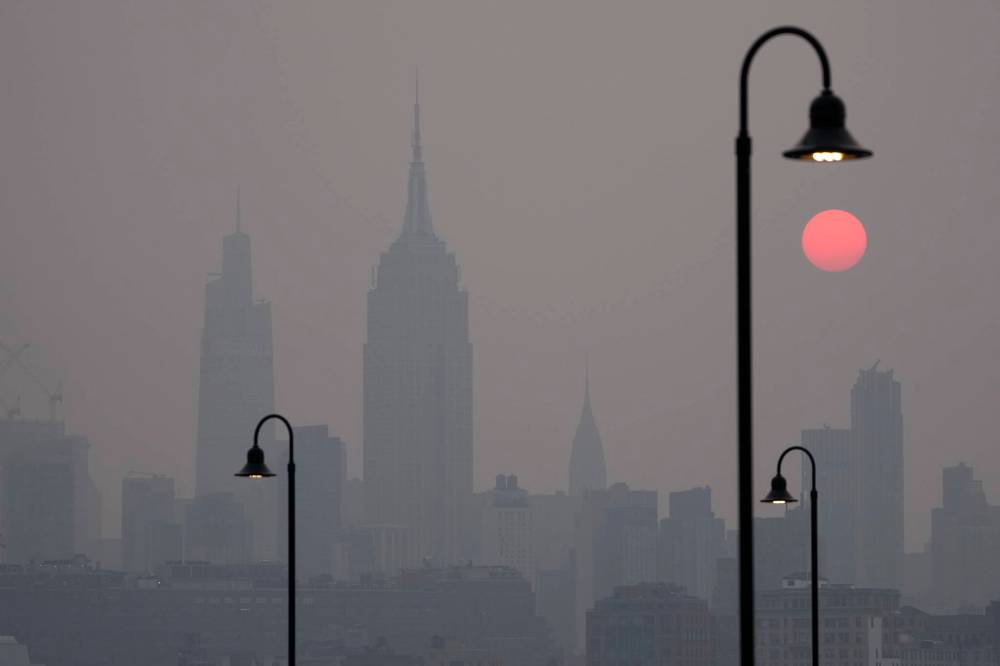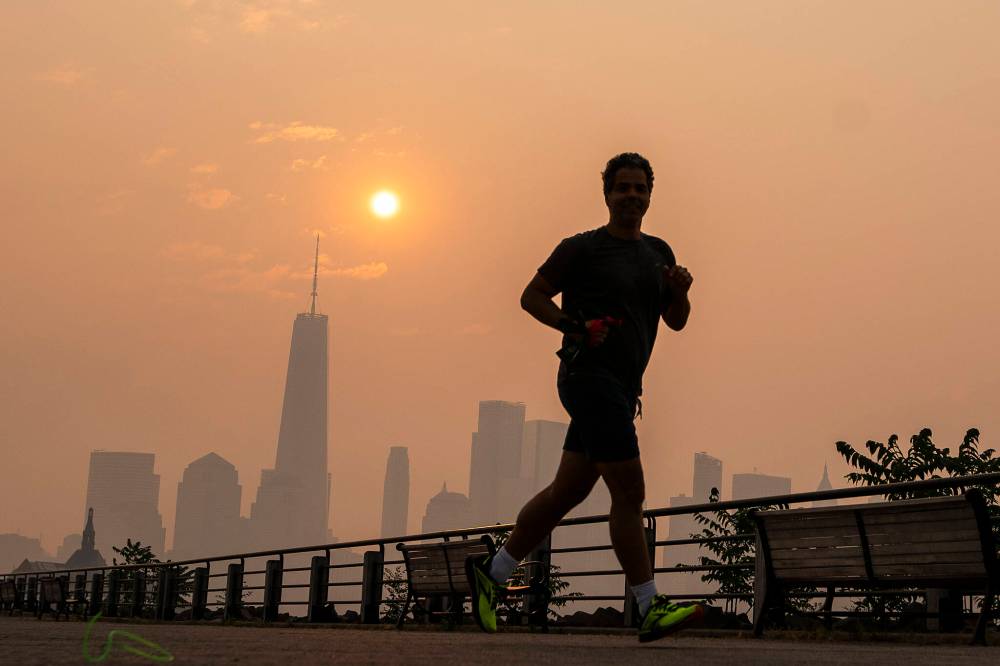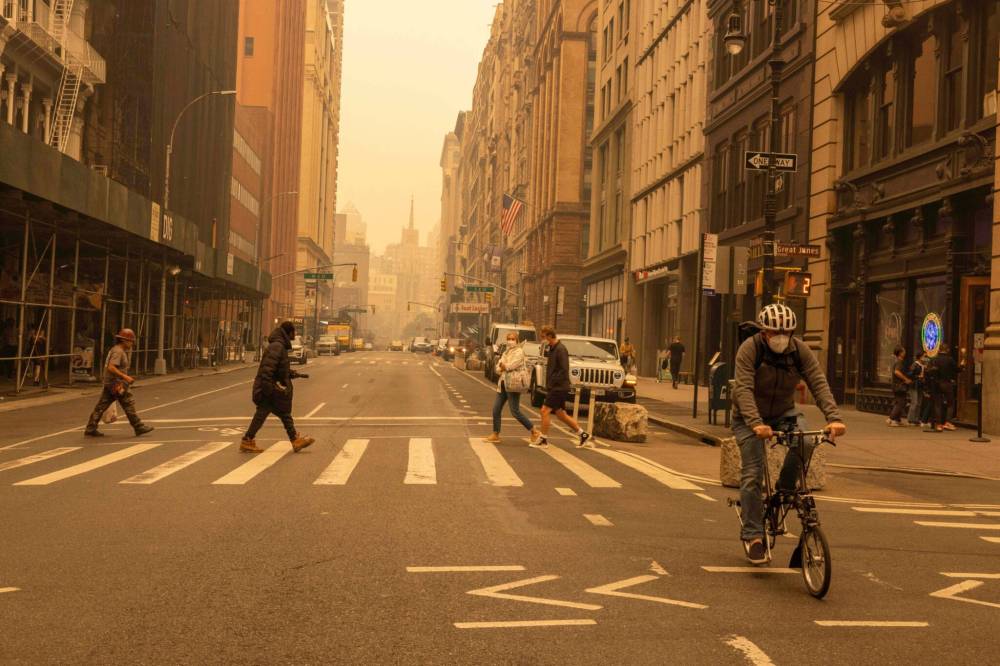Sure, laugh at ‘Eh!pocalypse’ humour
Allow a moment to feel the unfunny gut punch of climate change
Advertisement
Read this article for free:
or
Already have an account? Log in here »
To continue reading, please subscribe:
Monthly Digital Subscription
$0 for the first 4 weeks*
- Enjoy unlimited reading on winnipegfreepress.com
- Read the E-Edition, our digital replica newspaper
- Access News Break, our award-winning app
- Play interactive puzzles
*No charge for 4 weeks then price increases to the regular rate of $19.00 plus GST every four weeks. Offer available to new and qualified returning subscribers only. Cancel any time.
Monthly Digital Subscription
$4.75/week*
- Enjoy unlimited reading on winnipegfreepress.com
- Read the E-Edition, our digital replica newspaper
- Access News Break, our award-winning app
- Play interactive puzzles
*Billed as $19 plus GST every four weeks. Cancel any time.
To continue reading, please subscribe:
Add Free Press access to your Brandon Sun subscription for only an additional
$1 for the first 4 weeks*
*Your next subscription payment will increase by $1.00 and you will be charged $16.99 plus GST for four weeks. After four weeks, your payment will increase to $23.99 plus GST every four weeks.
Read unlimited articles for free today:
or
Already have an account? Log in here »
Hey there, time traveller!
This article was published 09/06/2023 (889 days ago), so information in it may no longer be current.
As wildfire smoke from uncontrolled blazes in Canada turned the skies of New York City an acrid orange and air pollution hit historic levels of bad, the New York Post thought it would have a little fun with it on Thursday’s front page.
“Blame Canada!” blares the main headline. “Canuck wildfires plunge NYC into eerie, smoky hell.” “Eh!pocalypse Now” reads the banner, as the cover copy calls the smoke “the unhealthiest thing to come out of Canada since poutine.”
I’m frankly surprised they stopped short of referring to the sky in the background as “maple syrup-hued,” though perhaps that’s a mite too poetic for the Post.

SETH WENIG / The Associated Press
With the headline ‘Blame Canada,’ Thursday’s New York Post front page took a humourous stance on the Canadian wildfire smoke that darkened the Manhattan air on Wednesday.
If anyone appreciates a bit of dark humour at the end of the world, it’s me, though whether or not cringey Canadian stereotypes and a South Park reference from almost 25 years ago count as “dark humour” is debatable. We have to laugh to keep from crying; we’re all the This Is Fine cartoon dog, who sits contentedly while everything around him burns.
And, yes, there’s certainly the source to consider; the Post specializes in what I like to call “J. Jonah Jameson journalism.”
But read the room. Or the skies, as it were. I don’t know about you, but “historic levels of air pollution” are a grim harbinger of what summer will continue to look like — and what it has looked like for years on the West Coast — because man-made climate change is a story that merits a more serious treatment than a raccoon stealing a cruller at Tim Hortons.
The Post’s front page does deploy a clever bit of rhetoric, though. It downplays a crisis situation, it conveniently leaves out the word “climate,” and it assigns blame to Canada even though we’re all in this Satan’s armpit of our own making together. Wildfire smoke doesn’t care about our made-up borders; wildfires do not exist in a vacuum.
An opinion piece within the Post, meanwhile, argues people should blame forest management, not climate change, when people should feel free to blame both.
Wildfires have multiple causes. Lightning strikes are a major cause of forest fires, as are humans — especially those who ignore campfire bans, drive their ATVs on parched back-country trails or toss out their smouldering cigarette butts.
Climate change’s role? Making these fires much, much worse.

EDUARDO MUNOS ALVAREZ / GETTY IMAGES/TNS
‘Canuck wildfires plunge NYC into eerie, smoky hell,’ read the New York Post front page on Thursday.
Climate change helps create the tinderbox conditions — extreme heat, drought and storms — needed for bigger and more frequent fires.
Summers are getting hotter and drier; for the past few weeks, many parts of Canada have been under heat warnings, air-quality advisories or both.
Shorter, drier winters, meanwhile, also mean longer fire seasons.
Even though the forests are burning, the sky is orange and the air is unbreathable, people continue to double-down and deflect.
I have, over the past few days, been reminded of Adam McKay’s 2021 doomsday satire Don’t Look Up. The most frightening thing in the film wasn’t the Earth-annihilating comet headed right for them. It was the idea that some people will keep refusing to accept — or even care — that an Earth-annihilating comet is headed right for them, even when they can physically see that an Earth-annihilating comet is headed right for them.
Climate change is an existential threat that, for a long time, has been hard for humans to wrap their minds around because its effects weren’t always tangible in their day-to-day lives. Wildfires have made the effects of climate change visible; it’s harder to ignore the dystopian images of an ochre haze blotting out skyscrapers, especially when those images are outside your window.
Still, there are people who are more willing to believe a baseless conspiracy theory about a co-ordinated arson campaign than climate science. Or claim, as Ontario Premier Doug Ford did, that acknowledging climate change’s role in worsening wildfires is “politicizing” them.

ALEX KENT / BLOOMBERG
COVID-era masks are worn for the smoke of Canadian wildfires that darkened NYC skies.
Newspaper front pages that look like they could just as easily be sight gags from doomsday satires don’t help. “Blame climate change!” is a less cute headline than “Blame Canada!”
But it’s a lot closer to the truth.
jen.zoratti@winnipegfreepress.com

Jen Zoratti is a columnist and feature writer working in the Arts & Life department, as well as the author of the weekly newsletter NEXT. A National Newspaper Award finalist for arts and entertainment writing, Jen is a graduate of the Creative Communications program at RRC Polytech and was a music writer before joining the Free Press in 2013. Read more about Jen.
Every piece of reporting Jen produces is reviewed by an editing team before it is posted online or published in print – part of the Free Press‘s tradition, since 1872, of producing reliable independent journalism. Read more about Free Press’s history and mandate, and learn how our newsroom operates.
Our newsroom depends on a growing audience of readers to power our journalism. If you are not a paid reader, please consider becoming a subscriber.
Our newsroom depends on its audience of readers to power our journalism. Thank you for your support.

